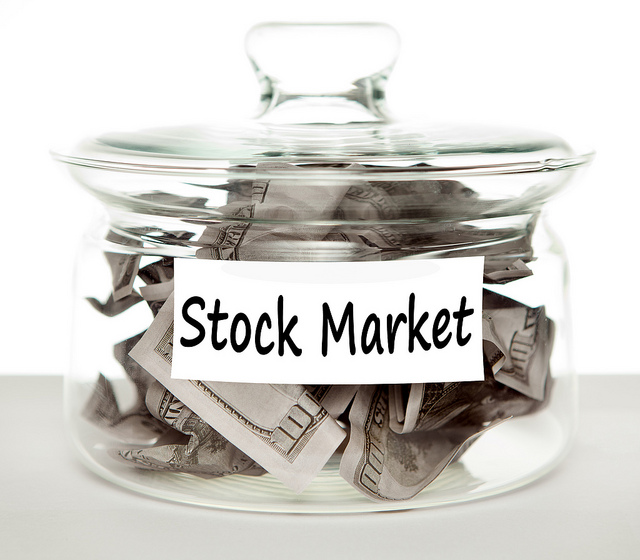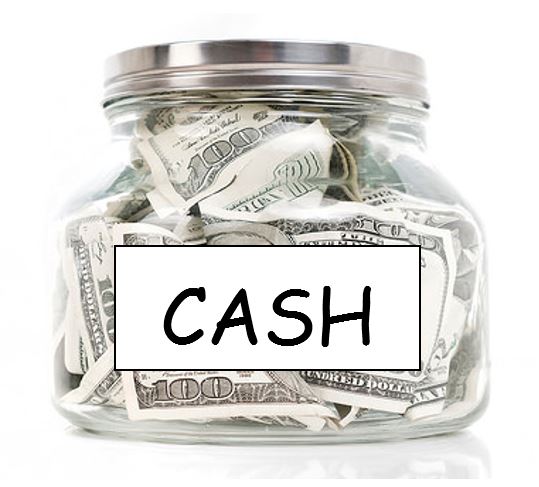Savings or Stocks? Which is best in my situation?

"Should I have my money in savings or stocks?" is a question you're likely to be asking if you've been saving diligently for years or you've just come into some money - maybe after selling an asset, receiving an inheritance, redundancy payment or a bonus from work.
Would you be better off saving that money or putting it to work in the stock market? Each has its place and, as always, everyone's situation is unique but we've outlined a few reasons below why you may wish to save or invest in the stock market. We hope this can help you decide and put you on the right path:
Savings or stocks? Situation #1...
SAVE if you have a short time horizon

Investing in the stock market is very risky in the short run. The market, without warning, can crash and prices are often volatile. If you need the cash in six months then it would be crazy to put that cash in the stock market. There simply isn't enough time for you to recover from any drops in the market.
For you to realize how volatile stocks are - remember that a correction (a drop of 10% from peak to trough) has happened in the stock market on average ONCE A YEAR since 1900 and a bear market (a drop of 20% or more) has happened about every 3.5 years since 1900. The chances of a stomach churning plunge in prices just after you invest are real, so investing short term cash into the stock market is really no more than a gamble.
Savings or stocks? Situation #2...
SAVE ... if can't stomach price volatility
At RetireOnDividends.com, we believe you should aim to become a long term INVESTOR. This means taking intelligent investment decisions using the facts available and avoiding speculation.
Because stocks (in the short run) are extremely volatile and you need to have a certain temperament to be able to stomach that volatility. It is entirely possible that you could put $100,000 into the stock market and a couple of months later it's worth $80,000.
It's difficult to describe what this experience is like unless you've actually been through it. You could start counting all those hard earned dollars you've "lost" or you could receive a hard time from your spouse because you cancel the family holiday due to those paper "losses". The danger is that you sell purely because prices have dropped and you crystalize losses forever.
If you are to invest in the stocks over a longer period of time (more than 20 years) such price volatility WILL happen to you and if you can't stomach it then you should avoid the stock market. There is nothing wrong with this as luckily there are plenty of other ways you can make money without the market volatility you get from stocks.
Savings or stocks? Situation #3...
SAVE if you don't (yet) have an emergency fund
Before you dive straight into the stock market, you need to build up sufficient savings as an "emergency fund". Remember that life can suck sometimes and negative events do happen. You could lose your job, have a medical emergency or have to suddenly stump up cash for your house or car. It is vital that you build a cash buffer that you can draw on to pay for these events. This is because, you never want to be in a position where you are a FORCED seller of stocks. This puts you in a very weak position. Selling during a severe market downturn, when things like job losses are at their most likely will destroy your chances of long term wealth.
The size of the emergency fund you need depends on how exposed your job is to the ups and downs of the economy. In most jobs, we'd recommend that you have AT LEAST six months of living expenses saved up before you invest. If you have a very secure job (e.g. teachers / civil servants / nurses), you probably can get away with less of a buffer.
If you're forced to draw upon this cash then make sure that once you are in a position to save again then you top this "emergency" fund up before re-entering the stock market. Ideally, we think most people should probably aim for a larger fund than 6-months' worth of living costs. After all, losing your job during a recession usually means you will struggle to find a new job quickly. Since recessions can often go on for quite some time, you'll be very vulnerable and you must at all costs avoid selling stocks at a depressed moment in the cycle (when the smart money is buying!)
Savings or stocks? Situation #4...
Invest in STOCKS if you have a long time horizon
Over the long run, stocks have done very well and have easily outperformed other asset classes. As Jeremy Siegel has noted, although stocks are extremely risky in the short run they are actually remarkably consistent in the long run.
Over EVERY 20 year period in US history since 1800 stocks have outperformed cash and bonds. Of course it isn't guaranteed that this always happens in the future (just look at Japan) but the odds are pretty good. Therefore, if you have long term savings to put away and you can handle market volatility then it would be crazy NOT to invest in stocks.
With a broad portfolio of high quality companies, you are effectively betting on the future prosperity of America and the world. You get rewarded with a share of the profits generated and this should do wonders for your wealth over time. This is particularly the case if profits grow and you've paid a reasonable price for them. It would be pretty brave of you to bet against this!
Savings or stocks? Situation #5...
Invest in STOCKS if you want to protect yourself from inflation
Cash or savings historically have barely beaten inflation, in fact they often don't. Remember that inflation is always there eating away at your savings. 2-3% a year may not seem much but remember that this effect compounds over time and can have a big effect.
Since 1980 the inflation rate has been 2.99% per year and so you'd now have to have over $300,000 to have the same purchasing power as $100,000 in 1980 {smarasset.com for an inflation calculator}. The fact is that the dollar in your pocket has been consistently devaluing since World War II and this will be likely to continue with the current Federal reserve monetary policy.
Stocks over very long periods of time should help protect you against inflation. Since 1980 the DOW has moved from about 820 to over 24,000 now (as of 2018) and that doesn't even include dividends (adding another 3% or so per year!). The fact is that a broad range of stocks would have comfortably helped you to beat inflation in this time period.
A word of warning, though. Stocks don't always beat inflation over short periods of time. In the 1970s your real return (i.e. return after inflation) was negative. A highly inflationary environment can be difficult for many companies as their input costs go up and squeeze their margins. You also need to be careful with valuations as investors can bid up stocks at the first signs of a uptick in inflation as a "hedge" against rising prices. This increase in valuations will lower your future returns and make that "hedge" less effective. So once again you need to have a very long time horizon for the protection against inflation to come through.
Savings or stocks? Situation #6...
Invest in STOCKS if you have a big enough pot to where you can live off dividends
Having a very large pot lessens the importance of the whole "savings or stocks" question.
If you have a portfolio of cash generating assets that are always sending you checks then you don't need to worry about selling at bad times. It also means you should worry less about the daily "quotes" the market sends you. This website is dedicated to trying to help you build up a large enough portfolio so that you are receiving enough dividends to live off. This gives you much more freedom and enables you to live the capitalist dream.
Other Options?
If stocks aren't for you then don't worry. Savings or stocks aren't the only two games in town!
There are plenty of other asset classes than can grow your wealth. Perhaps real estate or commercial property. You could focus on bonds or build your own assets and earn royalties from them. These assets may not be as volatile in the short run as stocks and they could be better for you, especially if you find them easier to understand.
What's important is you don't get sucked into assets you don't understand and you avoid excessive leverage.
Made up your mind?
To delve deeper into the savings or stocks options, see our sections on bank savings rates and how to pick dividend-paying stocks.
Got a BURNING dividend question for 6-figure dividend earner Mike Roberts?
What is it that you really want to know about investing?
Submit a query and Mike will write a page in response.
PLEASE NOTE - in accordance with our terms of use, responses are meant for education / interest only. We do not give specific financial advice.



